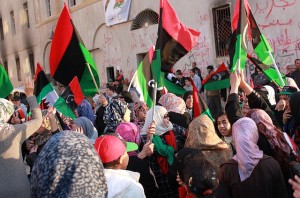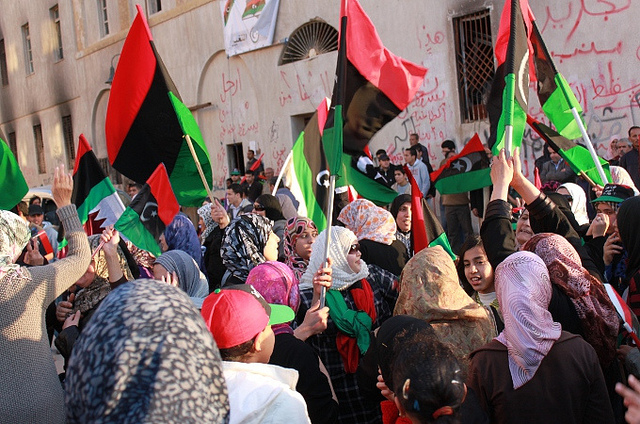
Despite the fact that many people choose to spend the last, lingering days of August on vacation in a state of blissful detachment from the cares and worries of the real world, time marches on and important things still happen around the world. Specifically, the conflict in Libya has reached what appears to be a tipping point, after months of fighting between Muammar Qaddafi’s troops and Rebels, also referred to as the National Transitional Council.
Rebel forces took control of Tripoli, the Libyan capital, this week after heavy fighting, and are now being recognized by many as the seat of power for Libya’s government. The United Nations (under pressure from the US and South Africa) released $1.5 billion to the National Transitional Council last week to facilitate the opening of oil wells, power plants, and other essential government operations that had been unfunded during the conflict.
As for Qaddafi and his large family (it seems like he has a different son being arrested every day—where do they all come from?), their whereabouts are largely unknown. The Algerian government confirmed that one of Qaddafi’s wives and three of his children fled to Algeria from Libya this week, and several of his sons have been arrested or have warrants out for their arrest. Qaddafi’s rumored location seems to change almost hourly, and almost all reports lack any form of corroboration by a trustworthy source. He was most recently said to be hiding in Bani Walid, a town 150 miles outside Tripoli where Rebels say they have him cornered, despite the staunch assertion of Loyalists that Qaddafi is not in Bani Walid.
Perhaps it is a sign of the times, but the idea of another manhunt for another deposed dictator is no longer enough to hold my attention. Rebels are asking for Qaddafi to step down and call off his troops to end the violence, but either way, Qaddafi is out of power and will not return, barring a complete and completely unforeseen reversal of fortunes for the Rebels and NATO. What remains to be seen is how long it will take for Rebels to gain enough stability to begin forming a true government, and what that government will look like.
It is easier said than done for a populist democratic movement facilitated with a strong military element to turn into a true representative government. Even in the best-case scenario, Libya’s future long-term government is unlikely to emerge for several months. If Qaddafi is deposed and replaced with a new military dictatorship, Libya will not have solved its problem, but will simply have set itself up for another round of unrest in a few years or decades. Now that NATO allies have made a significant commitment to Libya’s freedom from Muammar Qaddafi, it is important that they do not forget the struggles that face new governments. This does not mean that Libya should have a Western-style democracy thrust upon it (we all know how well that works), simply that it is far too early to declare a victory for populist revolution in Libya.

